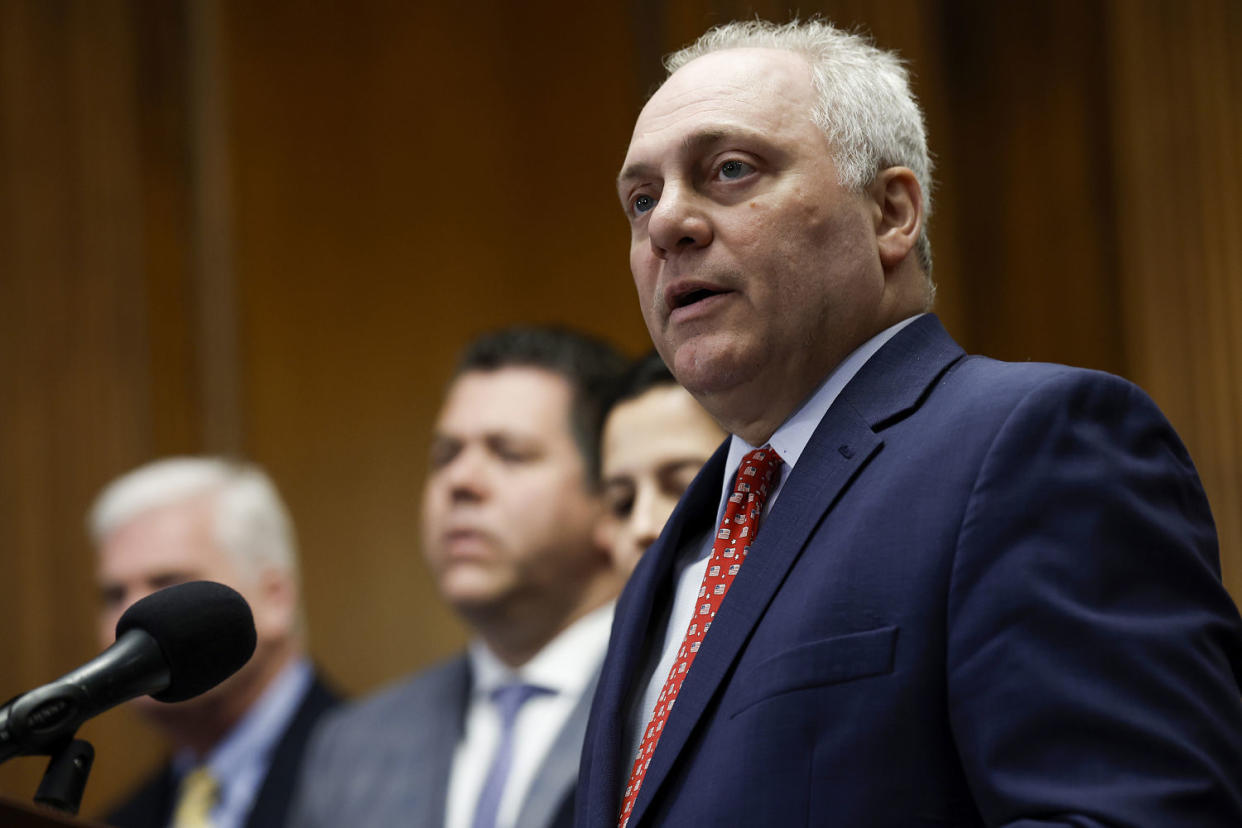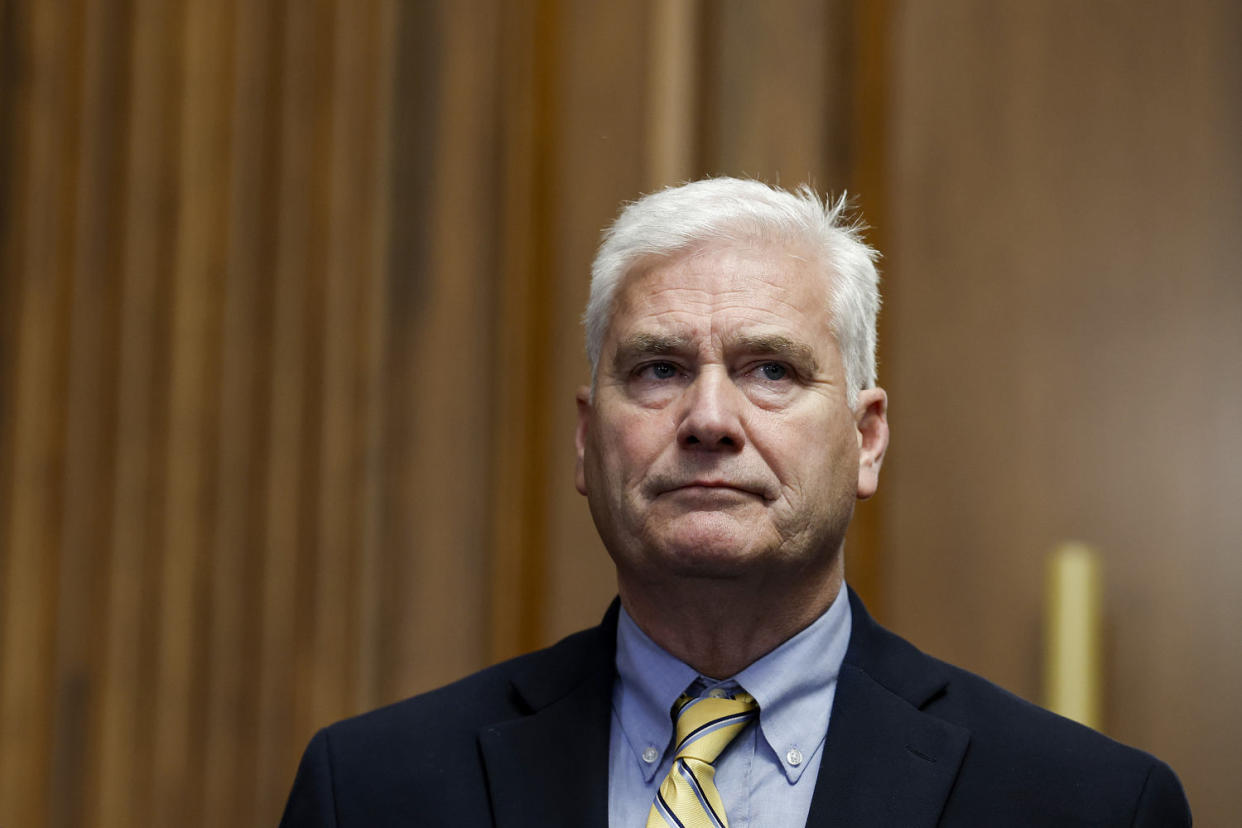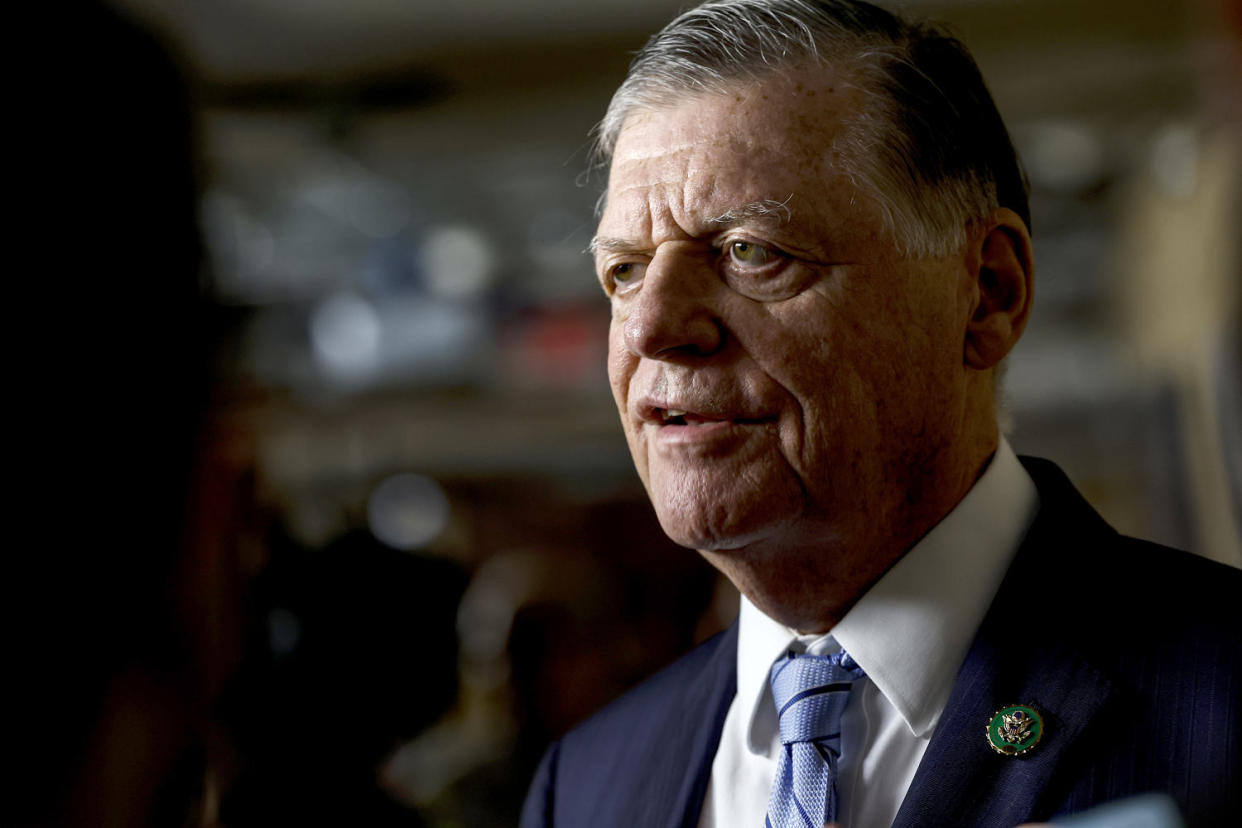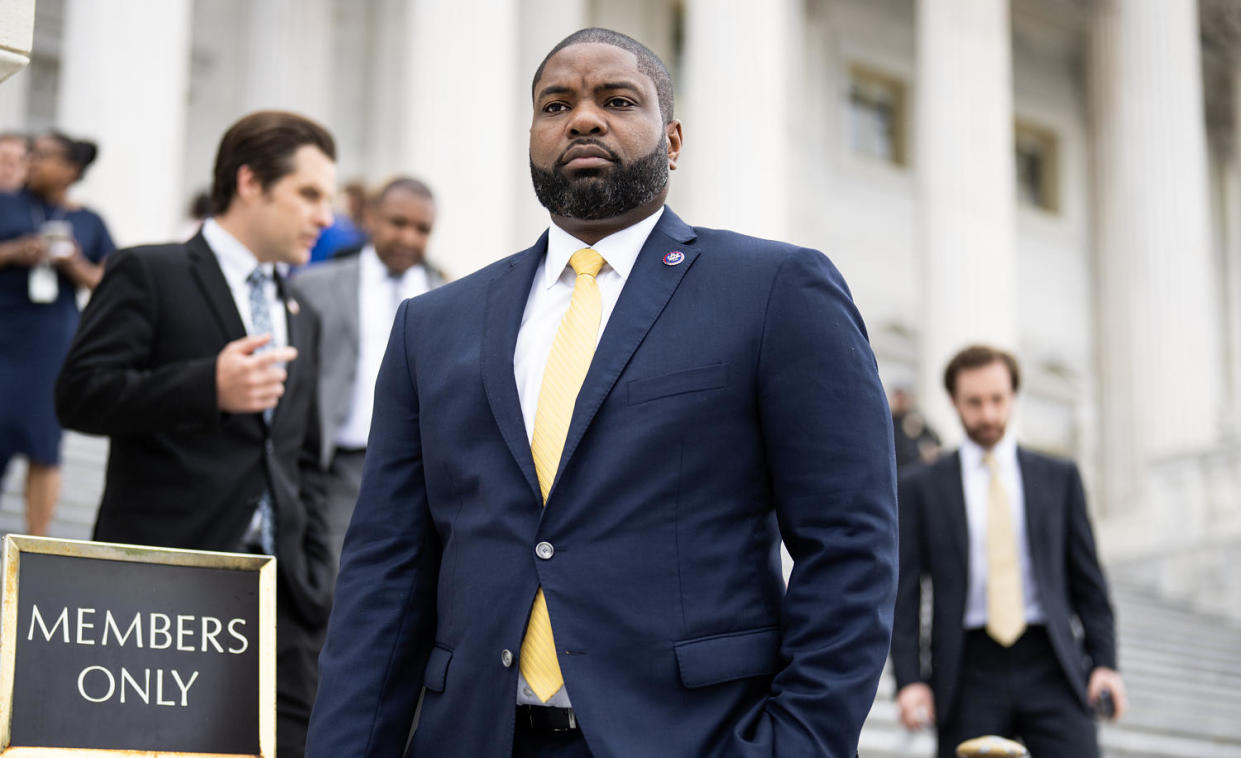Speaker Kevin McCarthy is on the ropes. Here are some possible successors.
WASHINGTON — Republican Kevin McCarthy made history Tuesday as the first person ever to be voted out of the speaker's office. Now there's rampant speculation on Capitol Hill about who can cobble together the votes to succeed him.
For now, there is no consensus on who might be able to fill the huge vacancy in the speaker’s office. But while McCarthy's top loyalists are furious over what transpired Tuesday, there is no shortage of ambition in the House of Representatives.
Here are some Republicans to watch — as speaker candidates or influencers in the battles:

Majority Leader Steve Scalise, R-La.
Scalise, 57, is the No. 2 leader of the House Republicans and would be seen as a natural choice to succeed McCarthy given his experience heading his party’s vote-counting operation as the former GOP whip and his inspiring story of surviving a mass shooting at a congressional baseball practice in 2017.
After overcoming a number of health issues related to that attack, Scalise announced in August that he had been diagnosed with multiple myeloma, a cancer of blood cells, and would be receiving treatment. The diagnosis raised questions about whether he could step into the rigorous job of being speaker, but Scalise has said he’s feeling good and that his doctor gave him a positive prognosis. And Gaetz has said he would not oppose Scalise for the job.
Majority Whip Tom Emmer, R-Minn.

Last fall, Emmer narrowly edged out two other Republicans to win the race for the No. 3 leadership job, GOP whip. Now he’s being discussed as a potential candidate for speaker, including in a story in The Washington Post about how some conservatives want Emmer.
Emmer, 62, known for his dry sense of humor and colorful hockey metaphors, said he’s not interested in being speaker. But he had two successful cycles leading the House GOP’s campaign operation in 2020 and 2022. And while conservative rebels have tanked some GOP votes, Emmer has shown an ability to corral Republicans on the big votes, despite the party’s razor-thin majority.
Rep. Garrett Graves, R-La., and Financial Services Chairman Patrick McHenry, R-N.C.

Graves, one of McCarthy’s most trusted allies in Congress, was tapped by the speaker this year to an unelected leadership position, chairing the so-called Elected Leadership Committee, and practically camps out in the speaker’s office each day.
A former chief deputy whip under Scalise, McHenry now holds one of the most powerful committee gavels in Congress as Financial Services chairman. The panel has jurisdiction over things like banking, insurance, housing, international finance and money and credit.
Both McHenry, 47, and Graves, 51, saw their influence soar even more after McCarthy tasked them this past spring with negotiating the deal with the White House to raise the debt ceiling.
Some conservatives, however, hated the trillion-dollar debt and budget agreement, saying it didn’t go far enough to cut topline spending levels, and they’ve privately blamed McHenry and Graves.
House GOP Conference Chair Elise Stefanik, R-N.Y.

Stefanik is the highest-ranking Republican woman in Congress. She secured her position as House GOP Conference chair, in part, due to her alliance with Donald Trump, replacing top Trump foe Liz Cheney after Cheney's criticism of the ex-president led to her ouster. As long as Trump remains the de facto leader of the GOP and her fundraising prowess continues, Stefanik will be a player to watch in any speaker battle, at least as an influencer.
As a potential speaker, she’d hardly be a consensus candidate in the narrow Republican majority. Her sharp U-turn in 2019 from New York moderate to MAGA acolyte has raised eyebrows within the party, and it’s unclear she’d be able to secure 218 votes. But at just 39 years of age, she has the luxury of time.
Judiciary Chairman Jim Jordan, R-Ohio

Jordan’s rise from right-wing backbencher to House Republican kingmaker mirrors the party’s transformation in the Trump era from a business-minded country club crowd to a band of right-wing culture warriors. Jordan was known as a right-wing agitator under past GOP speakers, an opponent of bipartisan deals, a supporter of the 2013 government shutdown and the founding chairman of the ultraconservative Freedom Caucus in 2015.
But in the Trump era, the party embraced his style of politics, and when Republicans took control of the House this year, McCarthy handed him the chairmanship of the powerful Judiciary Committee. He’s now a GOP leadership ally.
Does that mean Jordan, 59, can become speaker? That’s far from clear, particularly given the skepticism that lingers among the pragmatists in the House Republican conference. But his pugnacious persona and ubiquity in conservative media make him a player that any candidate for speaker will probably want to keep on their good side.
Rules Chairman Tom Cole, R-Okla.

Cole, head of the influential Rules Committee, has been a consummate ally of Republican speakers — John Boehner of Ohio, Paul Ryan and now McCarthy. He has a knack for evolving with the dramatic changes within the GOP during the last decade. A genteel and press-friendly Oklahoman, Cole has developed a reputation on Capitol Hill as an elder statesman and a voice of reason during intra-party skirmishes.
He’s a senior appropriator who’s respected by Democrats, even though many were shocked to see him vote alongside Trump to overturn electors for Joe Biden on Jan. 6, 2021.
That vote, which Cole described as channeling the views of his Republican-leaning district, captured a fact about Cole that could make him an intriguing player in any speaker battle: his responsiveness to political incentives. But it’s unclear Cole, 74, could unify the moderate and conservative wings of the GOP.
The wild cards

If Republicans can’t agree on a successor and the House descends into chaos, anything could happen. Because of that, GOP lawmakers have been floating the names of long-shot candidates who most people in the country have never heard of, but who are popular within the House Republican Conference.
They include a member of leadership, Conference Vice Chair Mike Johnson, R-La., a former chairman of the conservative Republican Study Committee; Rep. Kevin Hern, R-Okla., the current chairman of that group; and Rep. Dusty Johnson, R-S.D., the press-friendly leader of the Republican Main Street Caucus.
Another wild card is conservative Rep. Byron Donalds, R-Fla., who is Black and a member of the far-right Freedom Caucus. During the speaker’s race in January, Donalds, a Trump ally, was nominated by his fellow Freedom Caucus members to challenge McCarthy.
